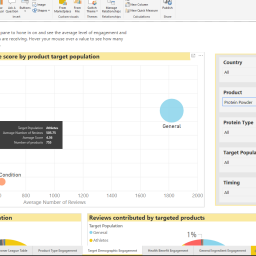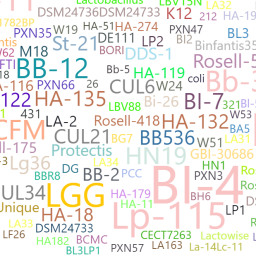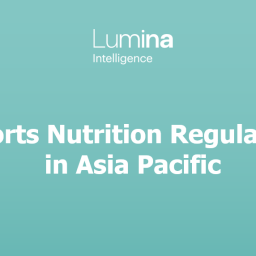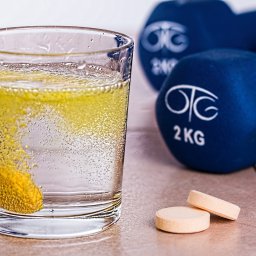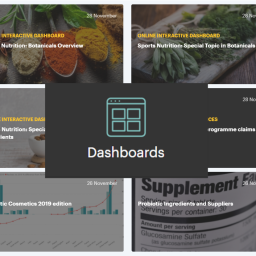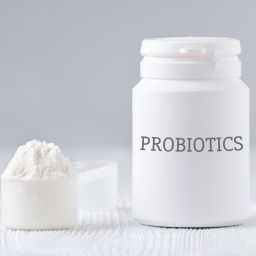
The culture around cognitive performance enhancement is changing. It’s no longer about plying your brain with noxious substances into remaining alert for 48 hours and then spending the next day in a zombie-like state. The new motto is maximising today’s energy instead of spending tomorrow’s.
There is also the growing recognition that the mind and the body are closely linked, and that what’s good for the body is also good for the brain. The sports nutrition sector, in particular, increasingly leverages this dual benefits approach. Younger audiences are a core target, but so are active seniors pursuing the anti aging objective.
What are nootropics?
In a nutshell, nootropics, also sometimes referred to as “smart drugs,” are substances geared towards boosting cognitive performance. This includes aspects such as mental focus, clarity, memory, motivation, concentration, creativity, processing efficiency and reaction time.
Nootropics as a category is extremely broad and encompasses anything from illicit drugs to prescription medications like methylphenidate (“Ritalin”), to substances found in everyday foods and drinks. The latter includes caffeine, omega-3 fatty acids, choline, amino acids B-group vitamins as well as a whole host of botanical compounds.
Moving on from caffeine
Without a doubt, caffeine is the most popular nootropic there is. Enabling students to study all night before an exam and preventing truck drivers from falling asleep at the wheel, caffeine is tried, tested and effective. But it has disadvantages, especially if consumed in excess. The famous “jitters,” sleep disturbances and irritability are among the most common side effects.
At the more extreme end of the nootropics spectrum are drugs like cocaine, sometimes used by people in high pressure jobs, like stock traders. This, however, can come at a very high cost. Heart disease, for one, is common among habitual cocaine users.
What is happening currently is that we are seeing a much more diverse offering of nootropics. These are often targeted at young people who want to improve their performance, mental as well as physical, throughout the day in a more sustainable way.
EnXtra (by Enovate) for example, is promoted as a caffeine-free botanical ingredient that is “clinically proven to improve alertness and focus for up to 5 hours with and without caffeine.” In combination with caffeine, to the manufacturer, it amplifies the benefits without leading to a crash, and neither does it increase blood pressure or heart rate. EnXtra is made from Alpinia galanga, a plant belonging to the ginger family, and won the NutraIngredients Award for Sports Nutrition Product of the Year in May 2019.
Nootropics Market: Sports Nutrition connects body and mind
The rapid expansion of the market for sports nutrition products is one of the major growth trends in packaged foods and beverages. This has been achieved by making products, which were once targeted at a specialist niche audience, relevant to mainstream Millennials. The roaring popularity of high protein products across virtually all categories is probably the most visible manifestation of this trend.
For any athlete, the mental component is just as crucial as their physical condition when it comes to achieving success. Therefore, the brain is becoming an increasingly important organ targeted by sports nutrition products, further heightening their mass market appeal.
Lumina Intelligence research, which analyses the top-ranking sports nutrition products online across 20 global markets, found that 24% of offerings claimed to improve energy, and 6% claimed to improve focus. There is also a new niche of products appearing that explicitly leverages mental health benefits. These currently account for 0.7% of sports nutrition products. North America (and particularly the USA) is the regional market which was the most innovative in this area.
of top-ranking Sports Nutrition products claim to improve energy
of products claim to improve focus on labelling and packaging
of products explicitly leverage mental health benefits
A factor that is fuelling the demand for sports nutrition products positioned as improving mental acuity and stamina is the continuing rise of online gaming culture. “E-sports,” as online gaming is also referred to, are a highly competitive pursuit, be it as a leisure activity or practiced at professional level.
The brain, after all, consumes around 20% of the body’s energy and gamers need to stay highly alert for hours on end, maintaining their focus, reflexes and quick decision making capacity on point. Besides the mental endurance required, gaming for extended periods is also physically taxing. For this reason, sports nutrition products, which are positioned as having brain health benefits, are attractive to this growing audience.
Two classic sports nutrition supplements that were once primarily associated with muscle building, but which are increasingly appreciated for affording brain health benefits, are creatine and L-carnitine. Creatine is essential for energy metabolism, and a good amount of research reports that supplementation has shown to impact positively on both physical and cognitive performance. L-carnitine supplementation may modulate nerve growth and acetylcholine pathways, though the research in this area is still rather tentative.
Then there is also choline. Choline is an essential component of cell membranes. It is also required for the synthesis of acetylcholine, a neurotransmitter that regulates mood, memory, muscle control, plus a range of other brain and nervous system functions. Foods like eggs, peanuts and liver are rich sources of choline, but not everyone gets enough through the diet, and supplementation has shown benefits.
Our research found that choline was present in 17% of pre-workout blends with an average dose of 335mg per servings. Five different types of choline compounds were identified, each with their own unique effects, e.g. choline bitartrate and CDP-choline. This indicates plenty of potential for product differentiation.
One of the long-standing key players in functional choline ingredients is Kyowa Hakko with its cognizin (citicoline) ingredient. Cognizin is promoted as fuelling mental processes, enhancing focus and concentration, supporting healthy memory function. It can be added to a wide variety of products, including beverages, cereals, candies, dairy products and chewing gum.
Another insight gleaned from our research is that the positioning of some types of ingredients, for example antioxidant compounds, is shifting more into a brain health related direction.
This appears to be the case, for instance, in the case of Pycnogenol (maritime pine bark extract). Formerly promoted chiefly as a supplement conducive to cardiovascular health, when examining sports nutrition products, Lumina Intelligence found five brands that used Pycnogenol to address energy, focus and sleep. We shall return shortly to the importance of sleep as a target for nootropics.
FREE WHITEPAPER DOWNLOAD
Seniors strive for active bodies and minds
Seniors are no strangers to cognitive enhancers. Acutely aware of the steady decline of their short-term memory and mental sharpness, mature consumers have been taking herbal remedies like ginkgo biloba, ginseng or omega-3 fatty acid capsules.
What today’s mature consumers are striving for is “active aging.” No longer content to live a quiet life shuffling around the family hearth, they want to stay engaged with their social lives, hobbies and leisure pursuits. Most of all, they want to hold on to their independence for as long as possible. The new generation of nootropics support both the body and the mind.
Clearly, there is potential for sports nutrition ingredients, like creatine and L-carnitine, to make their way into dietary supplements, foods and beverages targeted at seniors.
Sleep is central to performance and wellbeing
Getting sufficient sleep is imperative for optimum physical performance, cognitive function and mental health overall. Disturbed sleep, however, is a common problem. According to the National Sleep Foundation, nearly one third of adults complain of sleep problems.
Two up and coming substances for improving sleep patterns as well as cognitive and physical performance are cannabidiol (CBD) and ashwagandha. CBD is derived from hemp (Cannabis sativa) and has nothing to do with THC (tetrahydrocannabinol), as it lacks any intoxicating effects.
Instead, CBD has shown to have anxiety alleviating properties conducive to relaxation, healthy sleep and overall wellbeing. Also experiencing considerable relaxation at the moment is the regulatory environment with regards to CBD. As a result, we can expect a surge of CBD products to enter the North American and European market spaces.
Ashwagandha is a herb that has been used on the Indian subcontinent to promote both physical and mental health for thousands of years. The latter part of its Latin name, Withania somifera, literally means “sleep inducing,” although ashwagandha’s remit is much broader than that.
Besides modulating stress hormones resulting in a calming effect, ashwagandha is also purported to boost cognitive abilities, memory, focus and reaction time. It is increasingly employed in sports nutrition supplements for improving stamina, endurance and shortening recovery time. An example of a product targeting the sports nutrition crowd with relevant benefits, including improving sleep quality, is Sensoril by Natreon Inc. Boasting a commendable safety record in addition to its versatility, ashwagandha truly has the potential of becoming the new flagship nootropic of choice.
Conclusion
Nootropics have come a long way from short-term attention boosters like caffeine. The latest nootropics formulations are more complex, targeting both the body and the mind in a way that supports health in the long term.
Nootropics market research needs to focus on the specific needs of different target groups. For older generations, nootropics will become a firm part of the pursuit towards longevity and anti aging, while for younger audiences, they may serve to help with achieving a particular goal or working through high pressure periods.
View all our reports
See the range of reports we offer for the sports nutrition market including market overviews, deeper examinations of niche markets, country insights and more.





